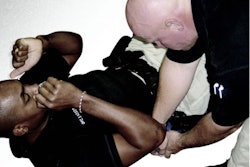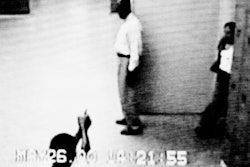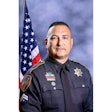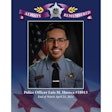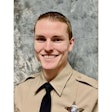It's interesting the subliminal effect that movies can have on us. Especially us cops, who are the subjects of at least one or two movies a year. Some of you may remember the movie "48 Hours" starring Nick Nolte and Eddie Murphy.
In this movie, one of the very bad guys was an American Indian named Billy Bear. He's a big guy, tall and muscular, an escaped convict that during the course of the movie shoots about a dozen cops.
Just keep that in the back of your head while I tell you this story.
One bright summer day in California I get a radio call about a parolee at large, possibly barricaded inside a house with an elderly woman. According to the dispatcher, the parolee's name is Billy Whitehorse, and apparently he was so drunk that he himself called 911 and told the dispatcher he had a warrant.
The acting sergeant, a good guy who will remain nameless, also gets the call and has our entire squad respond and stage down the street. He arranges for a K-9 unit and the helicopter. We then surround the house, guns drawn and down at the low ready.
With the helicopter circling overhead and K-9 handler and dog standing next to him, the sarge has dispatch make the call into the house. She tells the suspect to come out with his hands up and in plain view.
We all wait. A slow minute ticks by. The sound of the chopper's rotors echoes off the houses in the neighborhood.
Then the door swings open and Billy Whitehorse steps out onto the porch. All five feet and 100 pounds of him, in a cheap black suit. He walks with a pronounced limp across the wooden patio deck.
We all look at each other in disbelief. Without ever saying it, we realize we'd all been thinking of the bad guy in the movie.
Reality hits us and the sarge quickly dismisses the K-9, the helicopter, and the rest of the squad. He and I walk up and talk to Billy.
Billy takes out a cigarette and is going to light up. I tell him, "No smoking."
He leans into me, the top of his forehead almost touching my chest, and says, "Don't get tough with me, bub."
I grip his skinny wrist and move it up and around behind his back.
"OK," he says. "You can get a little tough."
Then he tells me, "I'm Billy Whitehorse. I sing and play piano," and he breaks into a rendition of "All My Exes Live In Texas" to prove it.
After Billy's handcuffed and sitting in my car, we talk to the old woman who owns the house. She's most uncooperative and, from what we can gather, she and Billy are friends and both alcoholics. Billy provides her with the liquor, since she is unable to drive anywhere, and she provides the money and a place for him to stay.
Some of the neighbors come out and tell us they're concerned for the old woman's welfare because they hear the two of them fighting whenever Billy is over. The neighbors say they've spoken to the old woman's adult children about the situation several times but nothing ever gets done.
I find Billy's warrant in the system, and it looks like he's going back to prison for a year for a parole violation. Although, he's so small and partially crippled, I find it hard to believe he's a threat to anyone.
I drive Billy to headquarters, him singing the whole way. I confirm his warrant and get a parole hold from Sacramento and book him into County Jail. He tells the intake deputy, "I'm Billy Whitehorse. I sing and play piano." I try to get out of there before he starts singing "All My Exes Live In Texas" again, but no luck. I'm locked into the sallyport for the duration.
The next morning we all have a good laugh at our collective over-reaction to the Billy Whitehorse caper.
Shift changes and new assignments come and go, and the old squad is broken up, moved to different areas and different watches. I'm with a whole new group of guys and gals the following summer.
We're sitting around the conference table at line-up and the sergeant is reading from the incident log. He talks about the recent murder of an old woman and the suspect, Billy Whitehorse, who was arrested at the scene by a patrol officer investigating a disturbance call at the house.
No one in the room was on the call that day. And I don't say anything about it either.
George Eliseo served 11 years as a patrol officer for the San Diego Police Department before retiring in 2000.





